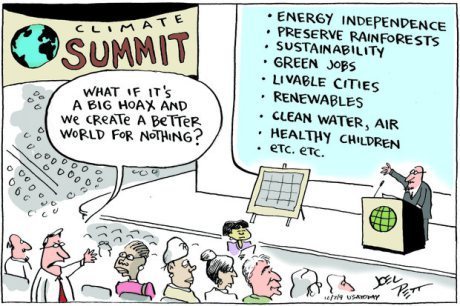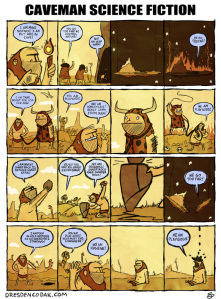Steven Lyle Jordan's Blog, page 54
January 9, 2014
What if?
January 7, 2014
Global warming and–yes–SNOW
 Weeks like this can be incredibly taxing, for a number of reasons. First, there’s the incredible arctic vortex that has blown all the way down to the southern U.S., causing record-breaking freezes, exacerbating flooding in the northeastern part of the country and breaking down power and water systems.
Weeks like this can be incredibly taxing, for a number of reasons. First, there’s the incredible arctic vortex that has blown all the way down to the southern U.S., causing record-breaking freezes, exacerbating flooding in the northeastern part of the country and breaking down power and water systems.
Then, there are the inevitable pundits who believe that every blast of cold is proof against global warming… and get to say so on national news services, where even more gullible people get to listen.
It continually amazes me that people who seem to understand that weather is not easily or linearly predictable, still believe they know more about it than experts and scientists—whom they refuse to listen to anyway. If they did, they’d hear all they need to know about the links between global warming and extreme weather of ALL KINDS.
Scientists have maintained that global warming doesn’t just warm the planet, it puts additional energy (through additional heat and moisture) into all weather factors. The results are that all weather patterns get ramped up, creating extremes across the board. We’ve had clear evidence of those extremes for the past few years, the most notable in the U.S. before this incredible deep freeze being Hurricane Sandy in 2012.
And local (American) newspeople like to conveniently forget that the United States does not equate to The Entire World… as, if they bothered to check the temperature of the rest of the planet, even averaged in with our present cold spell, they would find that the planet is still warmer. You’d think that professional newspeople would display the intelligence of someone older than a nine-year-old, and realize that there’s a world out there beyond their street. But apparently there are many news stations for which photogenic qualities push things like grade school intelligence right out of the equation…
In the last ten years, we’ve seen record heat… record cold… record flooding… record drought. News personalities refuse to believe this is anything but a “cycle” that will soon end. But is that really what they’re complaining about?
Last night, The Daily Show, in its first 2014 broadcast, touched on this subject, and news team member Jessica Williams gave us a kernel of the truth: That many Americans are less concerned with the dangers of global warming than they are with the idea that their freedoms are about to be usurped. Americans don’t want to be told what car to drive (or when to drive it), what temperature to set their thermostats, what trees they can cut down to feed their home fires, or how close to the shore they can put their homes. “Global Warming” threatens to put constraints upon them… and whether those constraints are good for them or not, they resist, because they are constraints.
When you look at many of the areas where technology puts new and changing demands upon Americans, their resistance to them can be directly attributed to Americans’ resistance to constraints upon their perceived freedoms. Americans have let the very words Freedom and Liberty become buzzwords, mantras that must be repeated, concepts that must not be assailed, or risk ruining what it means to be American. So they’ll accept any excuse, any dodge, even if it fits a nine-year-old’s understanding of how the world works, in order to maintain their status quo.
But in refusing to allow Freedom and Liberty to be bent or tested, we are ruining America by being intentionally blind to its needs and needed improvements. Refusing to take steps to curb global warming, because we don’t want to be told what light bulbs we can no longer buy, undermines the strength of this country, and all those who follow in its mud-weighted footsteps.
And sooner or later, all that effort put into not bending our Freedom will only result in its breaking at some point; we will be forced into steps that will be so painful and abrupt that we will find ourselves wishing we had been smarter, and bent a bit in the first place.
But then, that’s America: Don’t fix it until it fails. And learn the lesson the hard way. I remember a joke told by James Burke in his broadcast, After the Warming: He tells of a man who falls out of a 100-story building, and as he falls past the twentieth floor, someone sticks his head out of a window and asks, “How’s it going?”
The falling man replies: “So far, so good!”
To the pundits, and those who listen to them: Enjoy your snow, and your opinions, while you can. It’ll only hurt that much more when you hit bottom.


January 6, 2014
Tattoo future
 I was recently informed that a whopping 40% of the American population under age 40 wear tattoos. This is, to me, an impressive figure, considering tattoos have always been essentially permanent and unchanging… and in a society that is dedicated to variety and choice, you’d almost think tattoos would be the antithesis of that. Of course, medical science has discovered ways to remove tattoos (though not well), so maybe all those under-40s are just assuming they’ll be able to ditch the tattoo whenever they feel like it.
I was recently informed that a whopping 40% of the American population under age 40 wear tattoos. This is, to me, an impressive figure, considering tattoos have always been essentially permanent and unchanging… and in a society that is dedicated to variety and choice, you’d almost think tattoos would be the antithesis of that. Of course, medical science has discovered ways to remove tattoos (though not well), so maybe all those under-40s are just assuming they’ll be able to ditch the tattoo whenever they feel like it.
I’ve never seriously considered getting a tattoo, myself; I could never think of a word or symbol that meant so much to me that I wanted to have it branded onto my body. Not to mention the fact that there was a bit of a social stigma related to tattoos when I was growing up: Some places would not give you a job if you had a visible tattoo. Even though those days have—well, not quite gone, but lightened up considerably—the need for me to have a tattoo just isn’t there.
On the other hand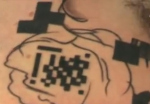 , if I could get a tattoo that did something useful, that would make it much more desirable for me. For instance, if my tattoo could unlock my home and my car… or if it could serve as the fob that allowed me to enter my office. Some are experimenting with tattoos that contain bioelectric circuitry, or include QR codes to trigger software when scanned (above… the QR code works, though the graphic may not be clear enough to read it).
, if I could get a tattoo that did something useful, that would make it much more desirable for me. For instance, if my tattoo could unlock my home and my car… or if it could serve as the fob that allowed me to enter my office. Some are experimenting with tattoos that contain bioelectric circuitry, or include QR codes to trigger software when scanned (above… the QR code works, though the graphic may not be clear enough to read it).
If my tattoo contained a bioelectric signature or QR code that locks could read, it could remove the need for me to carry a pocketful of keys everywhere I go. I’d LOVE that.
Of course, I can hear the privacy wonks scream as I post this… alongside those who believe we’d see a crime spree of criminals with scalpels, cutting away our skins to get at our ID tats. I mean, seriously: Do you believe criminals want to go through the trouble of cutting off skin or fingers to access your accounts biometrically, just to score a few hundred bucks?
Because, if you had half a brain, you’d have a panic button embedded on you somewhere that would automatically cancel your biometric account access and call the cops. So whatta ya worried about?
If you could have a tattoo that actually did something… what would you want it to do? Play a song when the sun shines on it? Start your car? Play animated art on your body? Broadcast your marital status at a party? Tell the DJ your favorite song?


January 2, 2014
Technophobia: A resolution
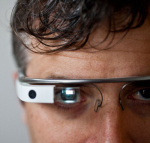 An article I read recently described the outright animosity experienced by a reporter on a long-term evaluation of Google Glass. I learned a new word from the article, one directed (openly) at the author: Glasshole. The article was shared with me on Facebook by a friend, who made reference of another word I learned: Bluedouche (someone who wears a bluetooth earpiece in the presence of other people, whether they are actually on a phone conversation or not).
An article I read recently described the outright animosity experienced by a reporter on a long-term evaluation of Google Glass. I learned a new word from the article, one directed (openly) at the author: Glasshole. The article was shared with me on Facebook by a friend, who made reference of another word I learned: Bluedouche (someone who wears a bluetooth earpiece in the presence of other people, whether they are actually on a phone conversation or not).
It served to remind me—as if I needed reminding—that a lot of people are still distrustful, distracted and outright frightened of technology. Still. In 2014. When I think overmuch on the irony of this situation, my head tends to want to pop… which, I expect, would make a noise similar to the “pohmp” voiced by Ahmed the Dead Terrorist.
Here we are in 2014, a year which sees many of us using cellphones to communicate with each other, and not just in the so-called “developed” world, but pretty much worldwide; in which some of us have cars that park themselves and slow down on their own before they rear-end the car you didn’t notice because you were texting in the driver’s seat; in which we can fly to any corner of the world, no matter how expensive, thanks to a plastic card in our wallets; in which we can carry thousands of books with us on an electronic card smaller than my thumbnail; in which we can carry on video phone conversations with people on the far side of the planet, essentially for free and in realtime; in which we are tapping into the human genome and finding cures for things which have beaten down scientists for centuries, including forms of cancer; in which the watch on my wrist can download the correct time from a clock, 2000 miles away, which uses cesium atoms to keep accurate time; and in this world, people say they don’t like technology.
Okay, sure, it can be said that people don’t dislike technology, but the ways in which it can be abused. NSA surveillance in real life and Person of Interest on television have us all convinced that some government wonk knows exactly how many calories we ingested with our coffee and cereal this morning. We see a person wearing Google Glasses, and wonder if he’s taking pictures of us in our… well, clothing. We see a person wearing an earpiece, and wonder if he’s taping our conversation about last night’s Caps game. And we don’t want to tell them about our real feelings about Breaking Bad, lest someone in authority decide that we’re closet meth-heads or wannabe drug lords.
Okay, so we’re overly paranoid. (That’s probably more Madison Avenue’s fault than the government’s, but still.) But blaming technology for our paranoia is a lot like blaming your shoes for the fact that you’re too fat to walk a mile in them.
This, I suspect, is why steampunk and dieselpunk are as popular as they are: Both represent technologies that are more easily understandable than today’s quantum-based electronics, and are mostly mechanical in form and function (no eavesdropping nanobots or wifi microphones sewn into our lapels and embedded in our coffee cups). The steampunk and dieselpunk worlds still allow us to keep our secrets to ourselves; they won’t magically escape our best efforts to keep them hidden (though we still have to worry about talking in our sleep, apparently).
And as long as we are like this, how can we possibly move ahead? How can we give our trust to cars that are just a few years away from being able to drive us anywhere we want to go (something we’re willing to trust to a cab driver with 2 months’ residency who doesn’t even speak our language)? How can we use our cellphones’ security software to locate or protect us, if we’re turning it off to prevent being eyeballed from space by the CIA? How can we progress to superior biometric ID and security systems, if we’re all using social media to share articles about criminals cutting off our index fingers to penetrate our grocery store convenience accounts?
We, as a people, clearly have issues… but we need to understand and admit that our issues are not with technology. We still have trust issues. We still fear what we don’t understand. And we still fear others whom, we suspect, know more than us. And those issues are preventing us from progressing.
So: Maybe we should consider a joint New Year’s resolution for 2014, something that will be good for all of us: We need to devote ourselves to understanding technology, its capabilities, its limitations, and its worth; we need to develop our technology openly and logically, being mindful of sloppy designs that can lead to unintended and improper use; we need to inform everyone about the technology, and listen to legitimate concerns about its failings or potentially improper use; and we need to apply technology carefully, properly and logically, with no corners being cut to satisfy profit, favoritism, corruption or subversion.
Let’s make 2014 the year we beat down technophobia, and face the future with open eyes.


December 30, 2013
The blog hits are creeping up…
…someone must have put up a fresh link to my Wrath of Khan post. Seems like it’s all anyone wants to read around here.
Some days, I wonder: If I go back to that post, and edit it to say, “Y’know what? I was so wrong! Wrath of Khan is DA BOMB!” that people might love me so much for saying it that they’ll buy my books…


December 29, 2013
The Grand Plan ends in 2013
 No, not Obamacare. (God, you people have one track minds!) The “Grand Plan” was my plan to promote my books, using the web and social media to build presence, gain interest and followers, find readers and encourage those readers to tell their friends about my books. And it’s over.
No, not Obamacare. (God, you people have one track minds!) The “Grand Plan” was my plan to promote my books, using the web and social media to build presence, gain interest and followers, find readers and encourage those readers to tell their friends about my books. And it’s over.
A plan begun in 2006, it picked up a score or so of interested followers, but never really rose above that level… then dropped steadily, as all the assumptions about web- and SM-based sharing and buzz turned out to be empty. Turns out, no one shared. No one responded to ads and promotion—in fact, they outright avoided ads and promotion at all costs. No one read my witty or informative blog or Facebook posts and said, “Hey, this guy is pretty sharp. I should see if his books are any good.”
Efforts to make myself known to serious science fiction readers (and the websites they frequented) were similarly fruitless, as they had already decided that independent authors were not “legitimate” without a major publisher behind them… and therefore they must suck. Emails, requests, book submissions and press releases were all ignored. Crickets.
So, as of 2014, I’m shutting down the Grand Plan. Other than this blog, I will no longer maintain a web-based book-selling presence. The blog will mostly concern itself with posts about wonderful futurist ideas and ground-breaking technology which, I believe, will someday impact and transform life as we know it, and are therefore worth mentioning.
The books will continue to sit on the servers at Amazon and Barnes & Noble, and do what they will (or won’t, as the case may be). I just don’t know what to do with them; I don’t have a new plan. They’ll just have to hang around until I figure it out.
So, what will 2014 be occupied with? Well, mostly trying to reconnect with friends and family that my writing has alienated or pushed to the wayside. I’m also going to tend to my own entertainment desires, instead of the desire to entertain others. Time for a change.


December 21, 2013
The Last Sale
 ATTENTION: All of my novels have been reduced in price to $2.99 on my site; Amazon and Barnes & Noble are following suit.
ATTENTION: All of my novels have been reduced in price to $2.99 on my site; Amazon and Barnes & Noble are following suit.
If you know someone who’s been interested in my novels, but for whom $4 or $5 was TOO MUCH to pay for an unknown indie hack author… you might want to drop them a line.


December 17, 2013
Be seeing you
 Well-p… it’s become abundantly clear to me that I’ve absolutely failed in my efforts to promote my novels online. Spending time on forums, contributing to this blog, using social media both to promote my interests and my books, have netted me a solid goose-egg of sales.
Well-p… it’s become abundantly clear to me that I’ve absolutely failed in my efforts to promote my novels online. Spending time on forums, contributing to this blog, using social media both to promote my interests and my books, have netted me a solid goose-egg of sales.
Look at the numbers: I have less than a dozen followers on Twitter and Facebook. My blog post views are generally in the low single digits (unless I mention Star Trek on another site and link back to my Trek posts, in which case I can expect to see obscene page views for a 50-year-old show). I am not shared, retweeted, liked or linked to. And most importantly, no one who sees any of those pages ever—EVER—goes and buys a book.
In fact, saying all this is more to hear myself talk, since it’s not going to be seen by more than 3 people (if it’s a good week).
All of that is a shame… because, when I started producing my books, I knew that the only means I had to promote and sell them would be online. With my day job and my lack of advertising funds, there was no way I could manage anything else. I put stock in the oft-repeated claims by many others that, if you produce enough books and spend the time online to build up your cred, a slow trickle of buyers would eventually become a flood and you’d do… well, okay. (No one promised I’d be famous, and I never wanted to be. I just wanted to see a measurable second income from the books.) So I wrote 15 books and sunk all of my last nine years free time into building that online cred, and waited patiently for all that effort to bear fruit.
As it turned out, I didn’t do okay. I didn’t make a measurable second income. I didn’t make enough to keep my Starbucks card charged. I made less than the change that accumulates in my pockets after a week of buying cheap lunches near my office. I made Bupkis. I got rocks. Charlie Brown‘s rocks. My strategy to leverage the newfound power of the online world managed to turn me into a grain of rice in an enormous pot of stew, doomed to float about unseen in the brothy depths beneath the sumptuous meats and colorful veggies, unable to fight the currents of notice or popularity.
So, come the beginning of 2014 (unless I get into a pique of frustration and do it sooner), I’ll be killing the Twitter account, the books-dedicated Facebook page, and quite possibly, this blog. I’ll almost assuredly kill the website; after all, it’s costing me far more to keep it running than anything I’m actually making. I’ll leave the books in place on Amazon and Barnes & Noble for now, but with no way to advertise them, I expect them to continue their inexorable fall to new depths in the bookstore rankings.
This will obviously end my brief second career, the one I hoped would help finance my retirement… I have become another in a huge statistic of unknown and unmourned indie writers, those for whom lightning never struck, who never escaped their primordial pool, who bubbled once, hopefully, before dissipating in the ooze.
I’ve been told that, in such situations, you should always put on a brave, optimistic face and try to convince your public that you still believe the Sun will come out tomorrow. Well, I don’t have a public; so to hell with the brave face. To hell with recriminations, blame or complaints. It was a nice dream while it lasted; but like so many things, it was always to be a dream only. Time to wake up.
Be seeing you.


December 16, 2013
Sci fi hasn’t changed much.
December 12, 2013
The Prisoner: Rebel with a mistaken cause
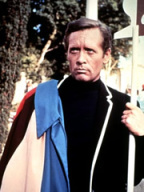 A fairly unimpressive series of circumstances led me to thinking about the groundbreaking series The Prisoner the other day. It was topped off by an interview with series creator and star Patrick McGoohan, years after the series had its run and became a cult phenomenon. Listening to McGoohan’s comments on the elements of the show, what was intended and what was not, the problems and the breaks, was truly enlightening. Something about this show, even decades after its creation, still manages to turn all of my thought processes over to the enigma and revelation that was The Prisoner.
A fairly unimpressive series of circumstances led me to thinking about the groundbreaking series The Prisoner the other day. It was topped off by an interview with series creator and star Patrick McGoohan, years after the series had its run and became a cult phenomenon. Listening to McGoohan’s comments on the elements of the show, what was intended and what was not, the problems and the breaks, was truly enlightening. Something about this show, even decades after its creation, still manages to turn all of my thought processes over to the enigma and revelation that was The Prisoner.
How in the world does a TV show do that?
First and foremost, The Prisoner was Patrick McGoohan’s statement, about the state of the world and the people living in it. McGoohan was in a rare position to make a statement like that, having just finished two seasons of the incredibly successful Danger Man (Secret Agent Man in the states) and having been popular enough to be offered the role of James Bond (which he turned down). When he told his producer, Lew Grade, that he wanted to do something new, Grade was willing to listen… and when McGoohan made his pitch, for an incredibly different and special series, Grade was willing to give him the money to get started. Only at the height of his popularity could McGoohan have pulled that off… most actors would have been laughed out of the studio.
Although many of the elements of The Prisoner were developed for the pitch, some of the elements were there in advance; most notably, the setting of Portmeirion in Gwynedd, North Wales. McGoohan remembered the place from an earlier visit, specifically, filming an episode of Danger Man. The unique layout and architecture surely must have spoken to the artist in McGoohan, for, if you take a good look, you realize how much the town’s elements look like live versions of not-quite-finished set backdrops, seemingly sitting around waiting for their moment to be moved onto center stage. In Portmeirion, all the world truly is a stage; and in fact, McGoohan used Portmeirion’s physical elements like stage sets for his series, to masterful effect. It’s a wonderful way to represent the way we see the world around us, in varying stages of completeness or “whole-ness” depending on our need or desire to interact with it, and it with us.
Think about it: I’ve never been in the U.S. Capitol. It rules my life, but it might as well be a hollow plastic shell for all I know or interact with it. Many institutions, venues and even homes are essentially set pieces to us; we assume we know what goes on inside, and sometimes we’re right… sometimes we’re incredibly wrong, and just don’t know it. Our world is only as real as our direct interaction with it, and Portmeirion’s appearance is wonderfully iconic of that fact.
McGoohan’s central idea, of course, was his personal displeasure with a society that sought to so thoroughly dehumanize all of us. His hero, referred to only as Number 6 by others (though never by the hero himself), strives to break the barriers to his own independence and freedom, symbolized by his efforts to escape the Village within which he has been trapped. When I was younger, Number 6′s drive to be free was of paramount importance to me. But as I grew older, I began to notice two things: One, how thoroughly (and depressingly easily) everyone around him either was broken, gave in to the inevitable, or died trying to escape; and Two, how malleable Number 6′s own morality turned out to be.
The second point was most damning, to me. Number 6 was supposed to be the man with the superior moral compass, the one who would stop at nothing to gain his freedom… the Rebel with a cause. But in fact, “stopping at nothing” often meant betraying others, or even agreeing to play the game that others wanted him to play, such as participating in a clearly bogus election (and being as snidely a candidate as anyone). When it came to escape, Number 6 was as amoral and untrustworthy as a used car salesman. I was watching a man who would do anything, short of outright murder, in order to escape his prison… the end justifying the means, and let the chips fall where they may. Exactly how morally superior is that?
This is the kind of thing that makes me stop thinking about other things, in order to re-re-re-examine what it was about this show that was so engrossing. When I thought about it, I realized that Number 6, for all his high-minded ideals, was no more a demigod than anyone else; he demonstrated a willingness to sacrifice some ideals, including his total resistance to play society’s games, when he thought it would get him what he wanted. Which, when you think about it, is no different than what anyone else who has embraced society will do to survive. Number 6 wasn’t actually trying to escape society… he wanted to be a unique element within it, to have the power to step beyond the pale and above the law, to do the things he wanted to do that society forbade him to do… in much the same way that McGoohan exercised his popularity cache to create a show that most actors wouldn’t get the chance to do. Number 6 wanted to be a superstar.
But ultimately Number 6 always returned to that society, just as he always returned to that apartment that society provided, after every failed attempt to escape, to sleep in the bed that society provided… because it was better than completely abandoning society, stripping off his clothes, and sleeping on the beach. Similarly, McGoohan may have been creating a unique and special television show, but he was still doing it within the parameters of the established television process, obeying producers, spending their money, following established production procedures… working within society’s boundaries even as he railed against it.
One of the novels of the Prisoner universe, The Prisoner: Who Is No. 2? by David McDaniel, addressed this reality better than most of the television episodes: Number 2 regularly played with Number 6′s patience by first giving him something that only The Village could provide for him… and then taking something away to shatter his sense of calm and predictability, say, a favorite food suddenly unavailable at the grocer’s, or a tool ordered for a repair arriving in the wrong size. Though he naturally would not admit it to others, the strategy clearly impacted Number 6, and further demonstrated his need for society and the things it provided… even if he refused to admit it to himself.
And at the end of the series, Number 6 was presented with Number 1, who was revealed to be… himself. A clear indication that he was ultimately master of his own life: He decides exactly how much of society he will accept, how much he will ignore, and how much he will gain or suffer for his efforts. When Number 6 seemed to free himself from The Village by gaining fame and notoriety within it, and using his new-found position to tear down the Village, we finally see him resume his life… doing exactly what he was doing at the beginning of the series, re-entering his own adventure in a vicious cycle. Again, like McGoohan’s efforts to step above television conventions and stand out by… making another television show.
It seems McGoohan’s struggle against the pitfalls of society truly was a never-ending one, in art and in life. McGoohan knew, all along, that you can’t escape society, you can only find your own way to live with it. It’s a very grounding reminder to those of us who oppose parts of society and embrace others, that ultimately it’s not our call: Society is what it is; it will not be changed by individuals like you me, or even by most superstars; and our only real choice is decide what we will accept, what we will play along with, and what we will endure in order to survive within it.



